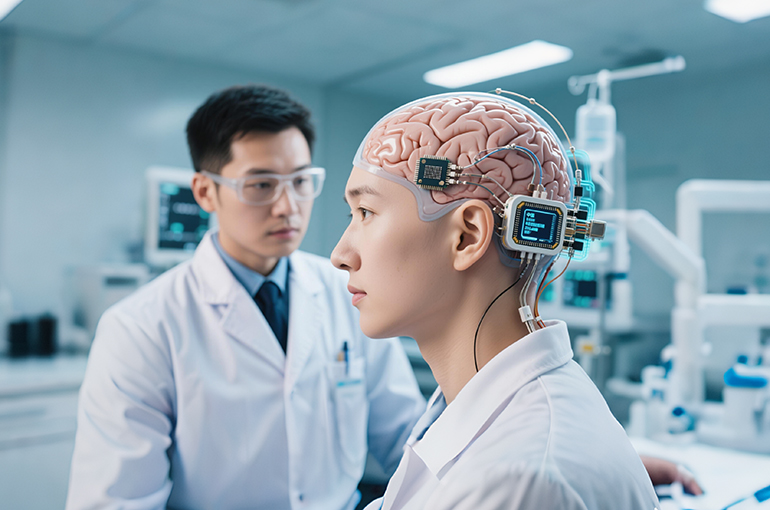 China Kicks Off Human Testing of Implantable Brain-Computer Interface Devices
China Kicks Off Human Testing of Implantable Brain-Computer Interface Devices(Yicai) June 3 -- China has started clinical trials of implantable brain-computer interface apparatus to test how safe and effective these devices really are when used to treat certain conditions.
The Clinical Cohort Study, which is being co-led by Shanghai Huashan Hospital and Beijing Xuanwu Hospital, has started enrolling patients, Mao Ying, president of Huashan Hospital, said at the 20th Asian Neuro-Oncology Annual Meeting that ended June 1.
Mao previously implanted a brain-computer interface device called Neural Electronic Opportunity, which was developed by a team led by Hong Bo at Tsinghua University, in a patient who had been paralyzed for four years after a car accident. After the surgery, the patient was able to use his mind to control his arm and perform simple tasks such as picking up a cup and drinking from it.
“Starting human trials for implantable brain-computer interface devices is a big step forward in getting this tech to more patients,” a neurosurgery expert told Yicai. “But there are still safety concerns around this invasive technology, such as how long the implant will stay compatible with the body and how the immune system might react after surgery. These questions will only be answered over time.”
The Shanghai Society for Neuroscience will set up a new branch that will focus on brain-computer interface technology and neuromodulation, according to an announcement made at the conference. The goal is to bring together experts in basic science, clinical studies and commercialization to push innovation and make technological breakthroughs.
This year marks an important turning point for brain-computer interface development in China as clinical trials get underway. Hong Bo of Tsinghua University told Yicai last December that the NEO device his team developed will start large-scale clinical trials in 2025, with plans to implant as many as 50 patients before the end of the year.
There are around three to four million people in China living with spinal cord injuries, and between 80,000 and 90,000 new cases each year, Hong said, citing industry data. This indicates that there are a large number of people who could potentially benefit from brain-computer interface technology.
Editors: Tang Shihua, Kim Taylor